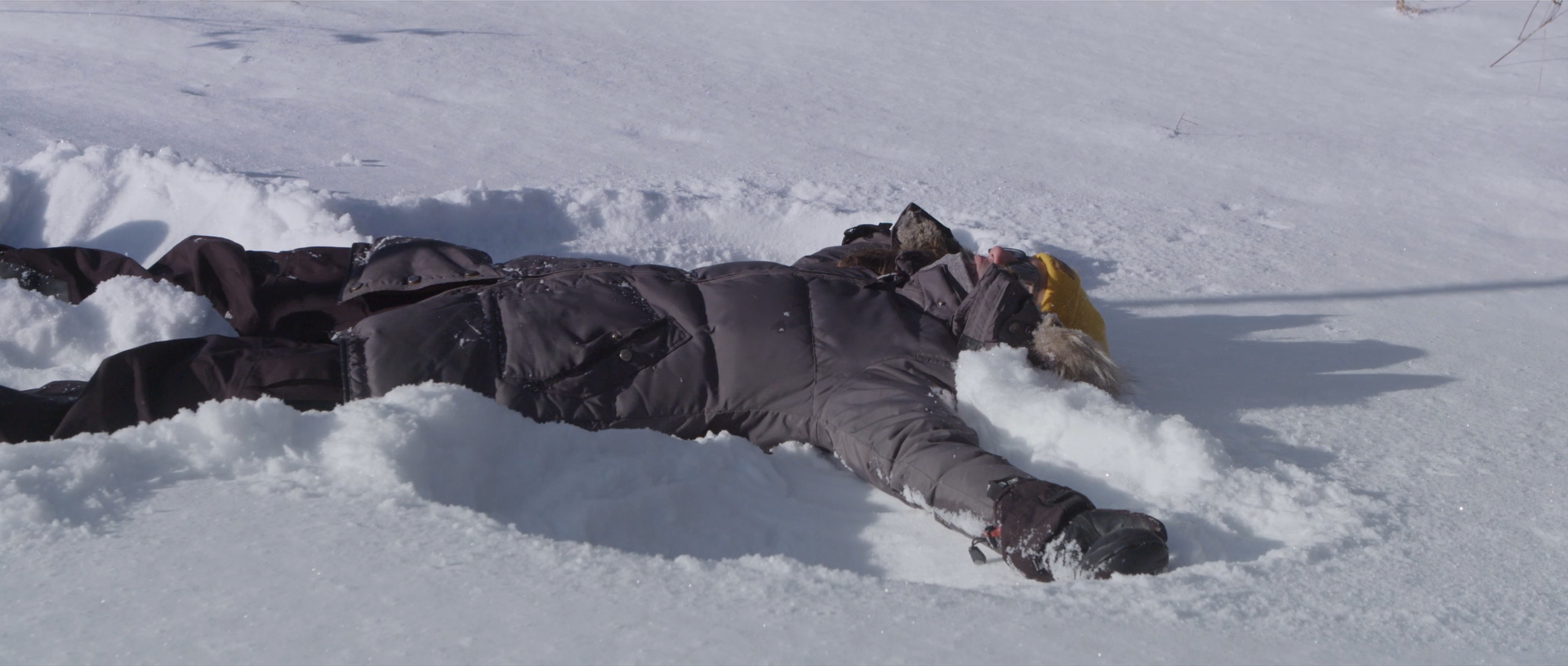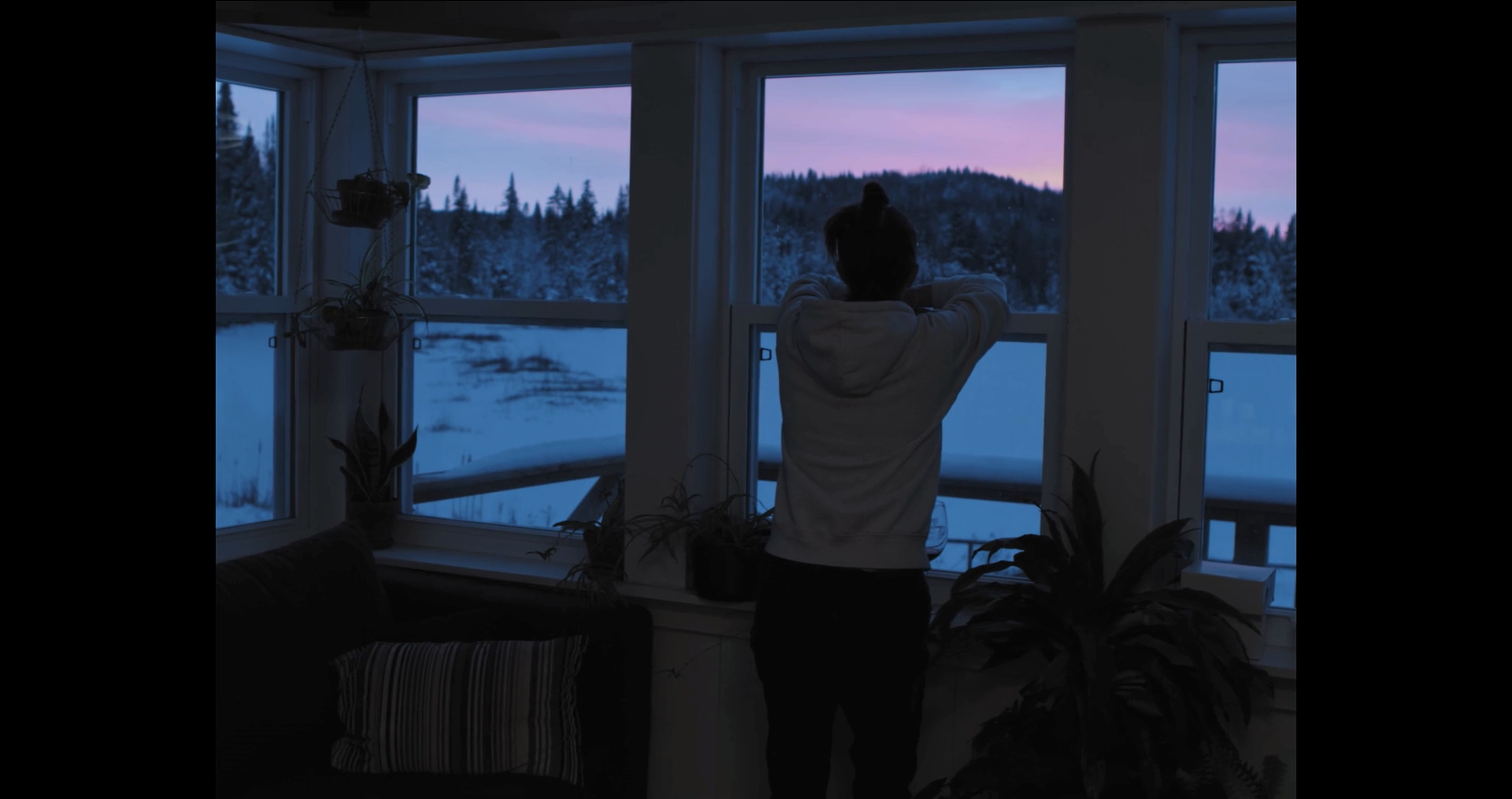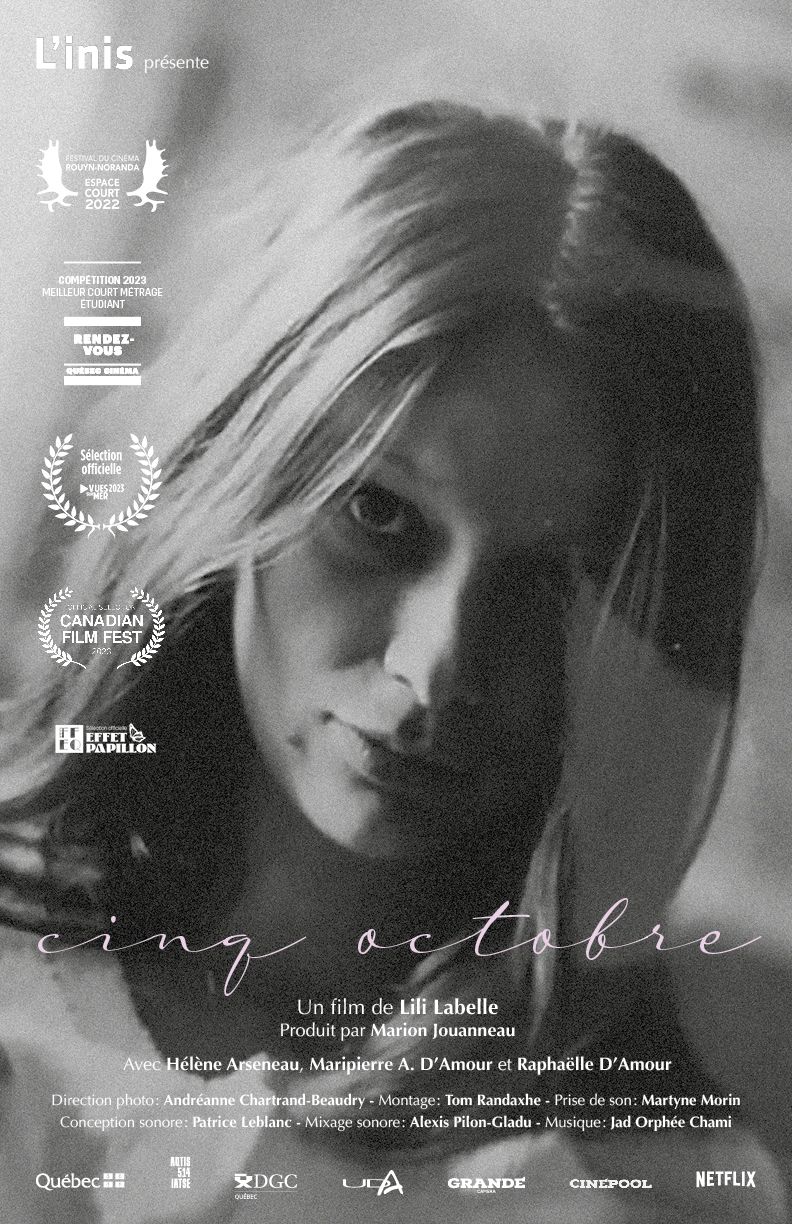Two siblings recall the devastating effects of ALS on their late mother in Cinq octobre. Director Lili Labelle discusses the personal impact of making her new documentary.
Cinq octobre (October Fifth) presents the real-life reflections of two sisters (Maripierre and Raphaëlle D’Amour) who come together to remember their mother (Hélène Arseneau) and her decision to die with the help of medical assistance in order to end her suffering due to amyotrophic lateral sclerosis (ALS).
The film offers a personal look into the complex relationship between a mother and her children, the emotional and psychological toll of coping with severe illness and the process of grieving.
Director Lili Labelle says she was moved to make the documentary by a personal fascination with family dynamics, the bonds that bring us together and the things that tear us apart.
“There was something in Maripierre’s story with her mother that resonated deeply with me – the attachment she had for her mother, and the fear she harbored at the thought of losing her,” Labelle says. “When I met her sister Raphaëlle, her words and profoundness about her mother completely shook me. I was convinced that it was urgent to make a film about what they had experienced, a subject that I felt was universal and essential.”

Cinq octobre was shot over one weekend in February 2022 in a rural chalet in the Laurentides region of Quebec. As Labelle explains, the setting offered a profound perspective and added to the poetic nature of the film.
“The cabin was first and foremost very picturesque. I also thought it would be good to create a secluded environment, to create an intimate bubble conducive to talking openly,” she says. “Moreover, naturally, I found a connection between grief and winter, as nature is in dormancy.”
“It’s impossible to achieve this kind of emotion if the subject of your film doesn’t feel comfortable.”
She adds that a combination of research and allowing herself to follow her instincts and be consumed by the project helped her develop a strong connection with both the material and the women in the film.
“I think it’s essential to have a good understanding of your subject and to foster a relationship based on trust and friendship between the director and the protagonist,” she says. “It’s impossible to achieve this kind of emotion if the subject of your film doesn’t feel comfortable.”

Labelle says she believes that the depth of the subject matter and the emotions the team captured during the shoot have translated into a very touching film on screen. At the same time, she says, the amount of material she was given led to what she describes as “a monumental task.”
“I would have liked to have made a slightly longer film because I had a lot of content. In the end, I had to make choices,” she says. “I feel like the film only covers the tip of the emotional iceberg that the two sisters experienced.”
“It was a significant personal accomplishment to prove to myself that I could be both a mother and a director at the same time.”
Cinq octobre is also the first documentary Labelle has directed. The experience of making the film, she says, has impacted her personally, as well as professionally.
“It has given me a lot of confidence in myself and my ability to direct because I saw that I could do it,” she says. “It was also my first professional project as a young mother. It was a significant personal accomplishment to prove to myself that I could be both a mother and a director at the same time.”

The film has already appeared at nearly a dozen festivals around Quebec and Ontario and is currently nearing the end of its tour. Labelle says the screenings have allowed her to interact with audiences and see first-hand how it has resonated with them.
“I’ve had meaningful encounters after the screenings with people who, like Maripierre, have experienced similarly challenging periods,” she says. “I think the film touches everyone, directly or indirectly, because, in one way or another, we will all face the death of a loved one or our own death.”
Ultimately, she says she hopes the film will encourage people to reflect on questions about their own health and the health of their loved ones, and will help draw more attention to a devastating neurodegenerative disease.
“I want to raise awareness about the disease that took the life of my protagonists’ mother. There is still no cure available for ALS,” Labelle says. “It affects not only the individuals who have it but also their families and loved ones, who may find themselves putting their lives on hold to care for the affected person. I hope that further studies will be conducted to research treatments.”
Connect with Lili Labelle via her website here or on Instagram here (@lili_labelle.brookli). If you would like to support ALS research in Quebec, you can make a donation here.




